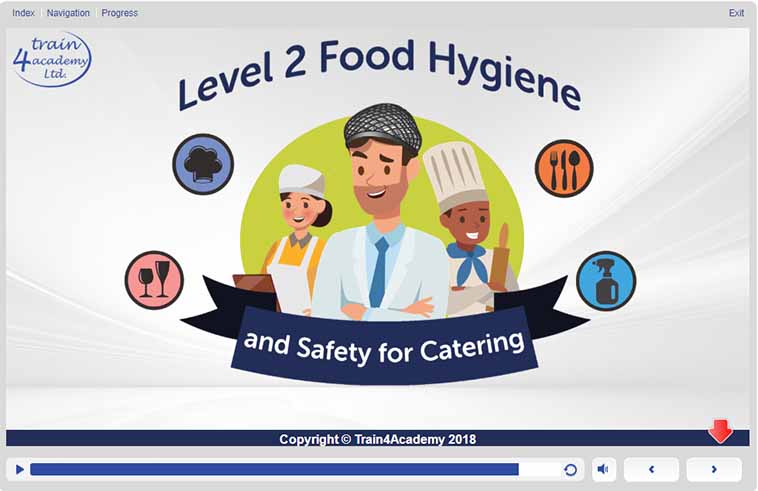What Food Hygiene Certificate Do I Need?
16/12/2019
By law, anyone who works with, or handles food, must be trained in food hygiene, which helps ensure food workers have the most up to date knowledge and skills while complying with food laws.
The Food Safety (General Food Hygiene) Regulations 1995 state that food-handlers must be;
"trained in food hygiene matters commensurate with their work activities"
Having a food hygiene certificate helps to prove that food workers have been trained to the relevant level of food safety for their role within the business.
How long does a food hygiene certificate last?
It is best practice in the UK food industry to renew food training every 3 years. Changes in legislation can happen and do, which means that food-handlers need to know the latest key aspects of good food hygiene practices as well as complying with the current law and to ensure that the food they handle or prepare, remains safe to consume.
Who needs a Level 1 Food Hygiene Certificate?

If your role within the food business doesn't directly involve handling or preparing of high-risk food, you will need a minimum knowledge of Level 1 Food Safety. This will help to ensure that you have a basic understanding of how to prevent contamination and cross-contamination of foodstuffs. This includes workers who deal with pre-packed foods, for example, serving tea and biscuits.
Other job roles that would require a Level 1 Food Hygiene Certificate include:
- front of house staff
- kitchen porters
- food delivery drivers
- waiters
- check-out staff
This includes others who enter food preparation areas in the course of their work, for example, maintenance workers.
Who needs a Level 2 Food Hygiene Certificate?

If you are a food-handler or work with food, you will need to do a Level 2 Food Hygiene Certificate. Some businesses may also require their employees to take more specialised training, again depending on their roles.
More obviously, others who require a Level 2 Food Hygiene Certificate include those who work with all food types such as chefs. Food-handling roles in the following areas will require Level 2 food safety training:
- Food manufacturing
- Cafe´s
- Restaurants
- Hotels
- Fast food outlets
- Takeaways
- Mobile caterers
- Kitchens, such as schools, universities, colleges, hospitals, care homes etc.
Who needs a Level 3 Food Hygiene Certificate?

Level 3 food safety is for those who have a responsibility for developing safe systems of work and managing or supervising staff who directly prepare, handle or serve food to the consumer, which includes:
- Head chefs
- Owners
- Managers
- Supervisors
Following best practice can prevent food from becoming contaminated or cross-contaminated. Not adhering to best practice and high food safety standards as required by the food laws can lead to complaints and negative reviews from customers, or even worse, an outbreak of food poisoning.
This, in turn, can lead to a loss of profits, a loss of business and a loss of consumer confidence, prohibition notices and prosecutions. Food-handlers must work to the highest food safety hygiene standards at all time.
Food Hygiene Training Courses
- Work towards compliance with UK & EU Food Safety and Hygiene Legislation
- Accepted by Local Authorities
- Instant certificate
